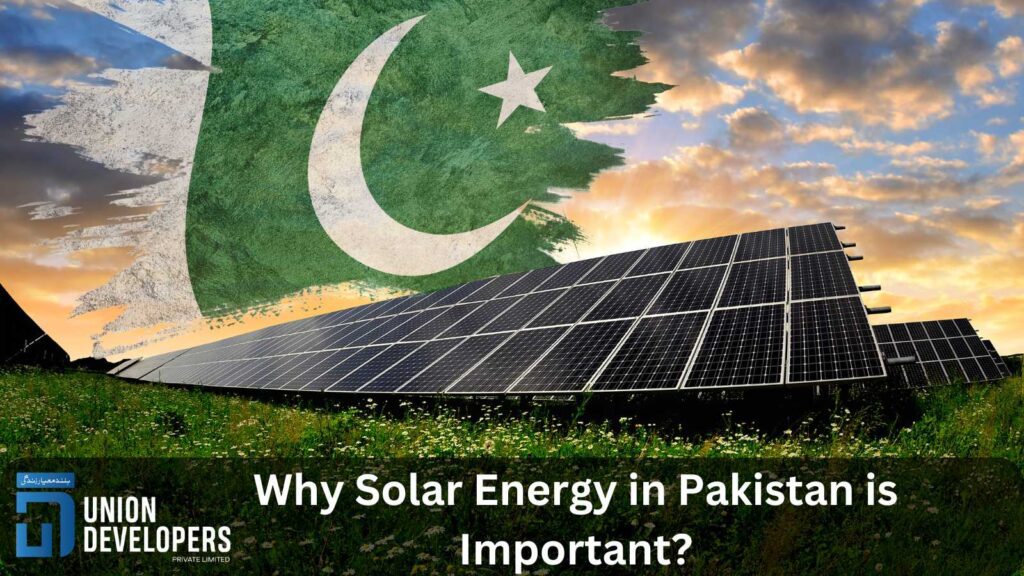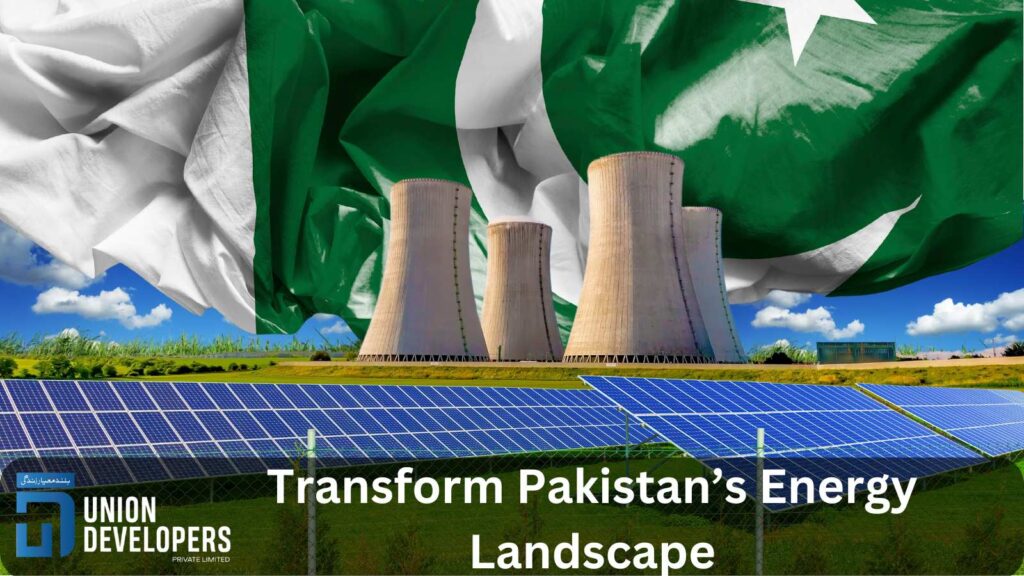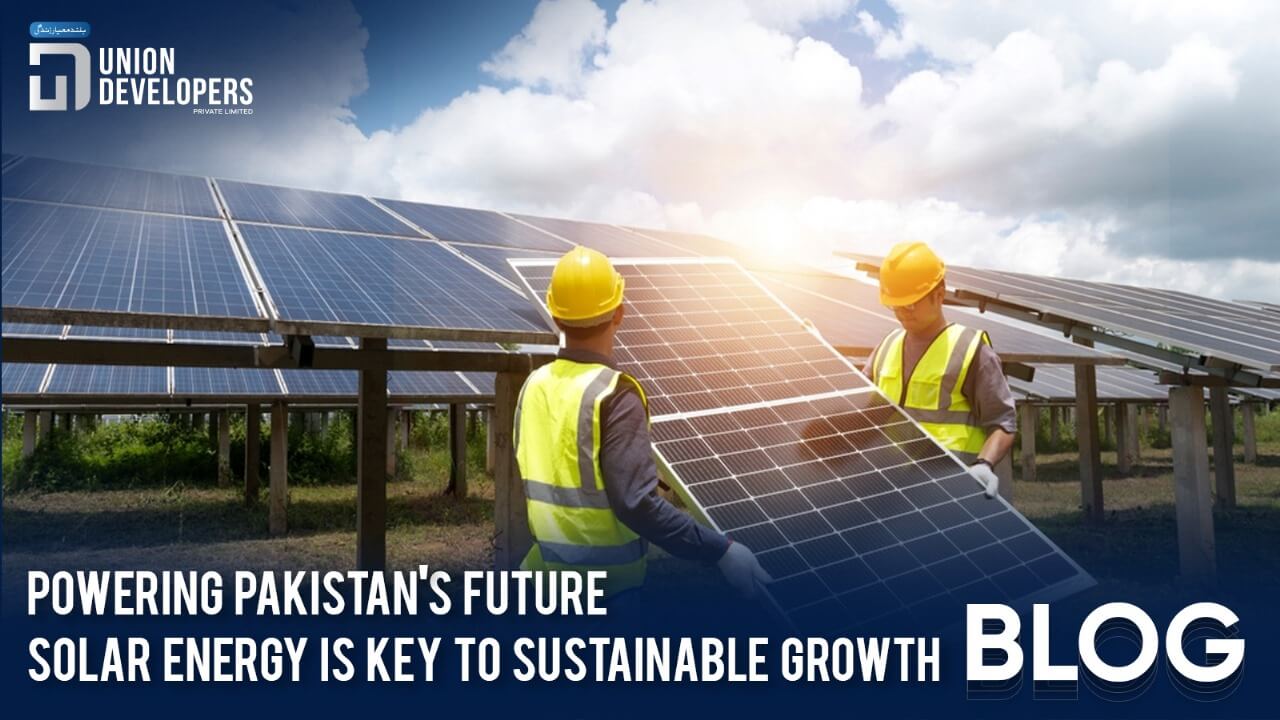The energy sector of Pakistan has been evolving, featuring more use of sustainable and renewable energy sources. This national reality includes increasing demands on electricity, continuing energy availability issues and growing environmental impacts. In this regard, solar energy comes as a solution to these problems. Due to the presence of plenty of sunshine in many parts of Pakistan, it becomes easy to say that the country can generate solar energy for the people in the future.
What is Solar Energy?

- Definition: A Solar energy is derived from the sun’s rays. It is renewable and environmentally friendly, as energy harvested through solar panels can be converted into electricity and heat energy can also be harvested for use.
- Mechanism: Solar panels contain photovoltaic panels which collect sunrays and can produce or generate electrical energy. This is done through the intake of rays from the sun known as photons which in turn produces electric current in the solar panels.
- Benefits: It is very evident that solar energy is green as it does not emit harmful substances as in the case of conventional energy sources. It offers a feasible answer to the ongoing energy crisis around the world.
The Energy Crisis in Pakistan
- Rising Demand: Pakistan, with its population of more than 240 million, has increasing energy requirements. The country fails to fulfil the demand, which resulted in power cuts experienced very often.
- Dependence on Fossil Fuels: The majority of Pakistan’s electricity comes from coal and gas, which are limited in availability and highly polluting.
- Economic Impact: Getting oil and gas for production of energy costs, the country has spent a lot of money in importing the oil and gas leading to economic strain due to high fuel prices coupled with shrinking foreign reserves.
Why Solar Energy in Pakistan is Important?

Sufficient Sunlight
- Location Enabler: The country gets on average between 5.3 to 5.7-kilowatt hours per square meter per day, and hence is considered to have a geographical advantage for solar energy as one of the optimum regions.
- Steady and Long Sunlight Period: The sun shines for extended periods on all months of the year, thus enabling the utilization of solar energy promptly and at all times.
Lowered Utility Expenses
- Lower Cost: The use of solar energy will bring down electricity consumption for both families and institutions. After the installation, the cost associated with the maintenance is low, thus added advantage.
- Self Sufficiency: Solar power reduces the degree of dependence on imported fossil fuel which lightens the economic pressure and the foreign exchange reserves of Pakistan.
Impact on the Environment
- Less Greenhouse Gases: The use of solar energy leads to a decrease carbon emissions and other greenhouse gases emitted into the air, hence keeping the environment clean and friendlier.
- Climate Change Action: The development of solar panels and renewable energy promotes social and economic growth while preventing negative impacts on climate change.
Solar Panels Pros and Cons

Pros
- Renewable Source: Solar energy can be utilized at any given time of the year, unlike limited fossil fuels.
- Low Maintenance Costs: Insulated soft convection heating systems are quite convenient to install and require little maintenance after being set up.
- Cutting Energy Costs: Surplus energy generated by solar panels can be used to lower electricity bills and even be sold back to the grid stations.
- Environmental Protection: Any electrical energy obtained using solar energy will not result in pollutants and will thus help in the preservation of the air quality.
Cons
- High Initial Cost: It involves expenses on purchasing and during installation of solar poles which can be regained in the future in terms of savings.
- Weather Dependency: Solar panels mainly rely on the direct sun rays for the production of energy and this can be less productive on hazy days, temperature control technologies can minimize this effect.
- Space Requirements: Buildings will need solar power more so when there is more demand, however, the installation of solar power panels requires a lot of land which is mostly hard in municipal areas or areas populated.
- Storage Costs of Energy: The storage of solar energy (using batteries for example) increases the general charging since it will be more expensive during the initial installations.
Solar Energy in Pakistan: Current Status and Future Potential

Current Landscape
- Government Initiatives: Apart from subsidy schemes, there are policies that the Pakistani government has developed to promote the use of solar energy.
- Rooftop Solar Boom: More and more power users, both residential and commercial, are installing photovoltaic (PV) panels for themselves from frequent load shedding and high costs of electricity.
- Net Metering: The government launched a new initiative of net metering whereby individuals are allowed to sell back to the power grid any excess electricity generated from solar energy, thus encouraging the use of solar power.
Challenges
- High Upfront Cost: Although long-term benefits can be derived from the proposed solar energy systems, the initial capital cost is still high and become a hurdle for the consumers.
- Lack of Awareness: A large number of consumers does not seem to have any information on the advantages of solar energy and thus impacts on its adoption.
- Regulatory Issues: Policy inconsistencies and red tape can delay the approval and commissioning of solar energy systems.
Future Outlook
- Investment Opportunities: High demand gives local and foreign investors opportunities to invest in developmental projects of solar energy in Pakistan which is promoted as an alternative energy source by regional governments.
- Technological Advancements: Such technologies as photovoltaic cells with increased efficiency and inexpensive energy storage further help accelerate the uptake of solar energy technologies.
- Government Support: However; with constant government support and policy encouragement, the solar energy sector stands to benefit the democratic republic of Pakistan by reducing energy deficits.
How Solar Energy Can Transform Pakistan’s Energy Landscape?

Rural Electrification
- Powering Remote Areas: Solar power can help in extending electricity connectivity in rural and remote areas which are not connected and the power infrastructure is unusual.
- Economic Uplift: Affording currency requires incorporating electricity which will promote micro businesses and local industries in the rural set-up and drive development.
Job Creation
- Employment Opportunities: This solar energy industry can employ a various people such as manufacturers and installers to maintain and sell the technology.
- Skill Development: This industry can invest in training technicians for solar energy to have sound stakeholders in the emerging industry.
Reducing Load on National Grid
- Decentralized Energy Production: The emergence of solar energy as a suitable source of energy has enabled people to generate electricity off the national grid and hence help reduce the load of power outages.
- Peak Load Management: Solar panels are one of the means to mitigate peak periods of energy use when including the summer months and air conditioning requirements are at peak.
Conclusion
Solar Energy in Pakistan is one of the healthy and environmentally safe energy alternatives which is viable under the current circumstances is Solar energy in Pakistan. Because Pakistan is endowed with most of the sunny days and the country’s need for electricity is keep rising. Thus, installing solar panels provides benefits to the environment, the economy and society as a whole.





